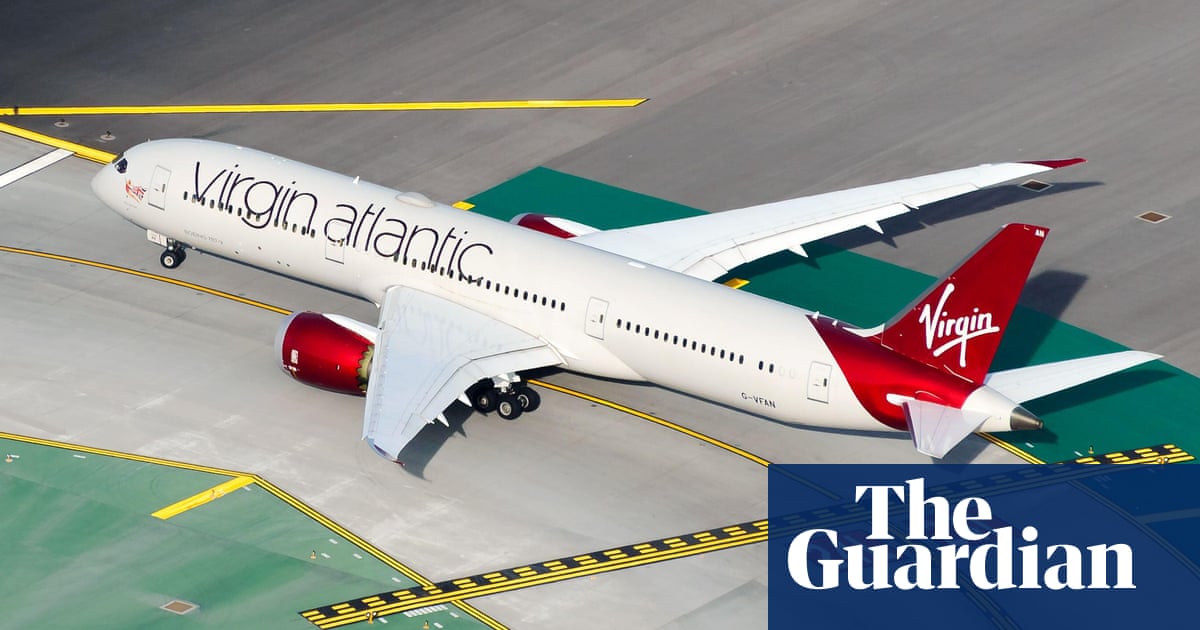Companies have continued to post misleading greenwashing adverts after being censured by theAdvertisingStandards Agency (ASA), according to an investigation.
Greenpeace UK’s investigative journalism unit,Unearthed, reports that Virgin Atlantic, Renault and Aqua Pura are among companies that continued to publish unfounded claims about the environmental credentials of their products after being told to remove such adverts by the advertising watchdog.
In 2021, the ASA announced a greenwashing crackdown, censuring companies for making claims without evidence. It said 44 firms had made misleading advertisements. As recently as last week, at least five of these firms were still posting claims they had been censured for making, according to Unearthed.
ASA rules mean advertisers need to be clear about the evidence behind any environmental claims, and a high burden of proof is needed for any absolute claims, such as that a product is “sustainable” or “eco-friendly”. The watchdog has few powers to ensure companies comply with their rulings; it says if firms are seen to be ignoring the rules it can “significantly damage their reputation”. However, it does not have the power to issue fines to advertisers.
Sanctions available include naming the company on the ASA website, asking search engines to remove paid search ads that contain the claim, asking social media companies to remove “non-compliant content”, and taking out its own paid search ads naming the company.
Virgin Atlantic has kept posts “pinned” to the top of itsInstagram, TikTok and X accounts, claiming it completed the first transatlantic flight using “100% sustainable aviation fuel”, according to Unearthed. This is despite the ASA making a ruling against the airline nine months ago for this wording in an advert, because it was likely to lead consumers to overestimate the carbon savings of using the fuel – it thought consumers would interpret “100% sustainable aviation fuel” to mean the fuel was completely sustainable with no negative environmental impact.
Renault repeatedly published videos on Facebook and YouTubelast year claiming its hybrid cars offered “up to 80% electric driving in the city”, despite a 2023 ASA ruling finding this wording to be misleading.
Other car manufacturers have continued to make green claims about their vehicles after being censured by the ASA. MG last year promoted its hybrid cars as “zero emissions”, but the ASA ruled the claim misleading, as hybrid vehicles are not zero emissions when being powered by petrol or diesel. Electric vehicles are zero emissions only when driving if the electricity that charged them is 100% renewable. An August 2024 brochure for an electric vehicle promoted in an original ad banned by the ASA repeatedly used the term “zero emissions” without clarification. Meanwhile, an ad for a used MG4 on the company’s website suggests that drivers can “embrace zero emissions” without clarification.
The front page of bottled water brand Aqua Pura’s website as recently as last week boasted about its “NEW Environmentally Friendly Caps”, three years after the ASA told the company to stop claiming that plastic bottle lids were “eco-friendly”. Easigrass, which makes plastic lawns, was told by the ASA more than a year ago to stop calling its synthetic grass products “eco-friendly”. However, it has continued to claim on its website that one of its plastic grass products is “eco-friendly and 100% recyclable”. At the time, the watchdog said that there was no proof that plastic grass was “eco friendly” and only one facility in the UK can recycle plastic grass.
An ASA spokesperson said: “Our world-leading work on climate change and the environment continues to be a priority area and we continue to proactively monitor green claims using our AI-based Active Ad Monitoring system, finding ads that potentially break our rules and getting those that do quickly amended or removed.
“We are seeing businesses adapting and evolving to make better evidenced, more precise green claims. As an example, following our airline rulings on ‘sustainable’ and ‘eco-friendly’ claims, of the circa 140,000 ads monitored, five were found to be non-compliant. But where we find issues, we act; as evidenced by our series of high-profile rulings against a range of businesses including some of the biggest companies in the world.”
A Virgin Atlantic spokesperson said: “We’re committed to achieving net zero by 2050 and key to this will be using sustainable aviation fuel (SAF), which is one of the most immediate levers to decarbonising long haul aviation. Flight100 was a milestone for industry globally as it proved that SAF is a safe, 100% drop-in replacement for fossil fuel and demonstrated the radical collaboration required to drive increased production, supply and uptake.
Sign up toDown to Earth
The planet's most important stories. Get all the week's environment news - the good, the bad and the essential
after newsletter promotion
“Social posts were shared to mark the achievement, demonstrate the breadth of the project and the challenges that remain for the industry to achieve net zero.”
A Renault spokesperson said: “Renault UK takes its responsibilities seriously and will investigate the issues raised.”
An Aqua Pura spokesperson said its advertising team had recently undergone a restructuring, meaning it was difficult to implement all the recommendations, adding: “We will verify the current and future application of all recommendations relating to environmental claims, particularly on our website.”
MG Motor UK said: “MG Motor UK fully accepted and then immediately responded to the ASA at the time, this related to a hybrid vehicle also being featured alongside an EV model and this was a point of clarification from the ASA which we accepted. We will always fully and actively cooperate with the ASA regarding any guidelines and all our creative teams are actively briefed to do so.”
An Easigrass spokesperson said: “We acknowledge the ASA’s ruling issued in March 2024 and can confirm that the marketing language referenced in your message was scheduled for removal following that decision. While our intention was to ensure all relevant content was updated accordingly, it appears a small number of archived references were inadvertently missed by our website team.”
